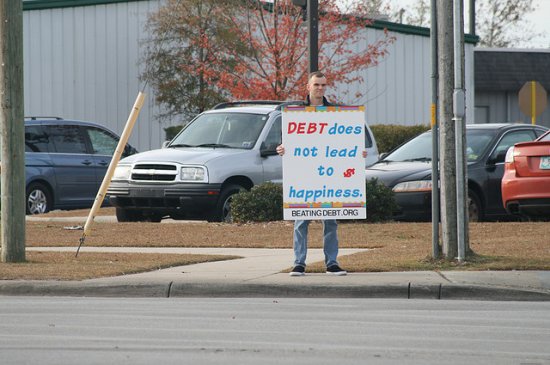
Being deep in debt can be scary, but not every instance of significant debt is either a cause for alarm or a reason to consider bankruptcy. For example, if you have a pile of debt but are earning a good income such that you can ably service that debt, you're not at a crisis point. And, if your debt is all secured (mortgage, car loan, etc.), but you're struggling to make payments, you may want to try and refinance or renegotiate your finance arrangement rather than filing bankruptcy. However, if you have a lot of unsecured debts that have become unmanageable, bankruptcy may be just the thing to help you regain your financial stability.
Types of debt that bankruptcy best helps
Both Chapter 7 and Chapter 13 bankruptcy will remedy most types of unsecured debt can be remedied , but more so by the former. These are debts that are not tied to an asset and include medical bills, store charge cards, credit cards and personal loans that aren't secured by an asset. Student loans are also unsecured debt but can only be relieved in bankruptcy under certain specific circumstances (extreme poverty, severe illness, permanent disability, etc.).
Types of debt bankruptcy may help
Secured debts can be remedied in bankruptcy, but more so with Chapter 13 than Chapter 7. With a Chapter 13, you can get more time to catch up on delinquencies on your mortgage or car loan. Repayment plans in Chapter 13 last from three to five years and offer you this period to catch up on back balances. You have to resume paying your monthly installments and then also pay a bit toward the back balance.
For instance, if you are behind $10,000 on your mortgage and have a five-year repayment plan, you would pay back $2,000 a year on this back balance (equals $167 a month). Additional time to pay can help you avoid foreclosure on your home or repossession of your vehicle. With a Chapter 7, if you're behind on a mortgage or car loan, filing bankruptcy can delay foreclosure but doesn't allow time to catch up. However, if you're ready to give up a house or car you can no longer afford, it will wipe the slate clean of any associated debt once you return the collateral.
Best case scenarios from bankruptcy
If you have a blend of secured and unsecured debt and are struggling to pay bills, prioritizing mortgage and car payments is smart so long as you're not upside down on these assets. By keeping current on these debts, even if you had to let your credit card payments slide, bankruptcy can help, particularly Chapter 7. If you can pass the Means Test and are allowed to file a Chapter 7, you can have your credit cards, medical bills and other unsecured debts discharged. This frees up money to get back on track financially without losing your house or car. So long as you are current on payments on your secured debt, your lender will usually not be fazed by your filing bankruptcy. It's better for the lenders, because it makes it easier for you up to keep paying your debt to them.
Please read the original post on our affiliate site, BillsBills.com